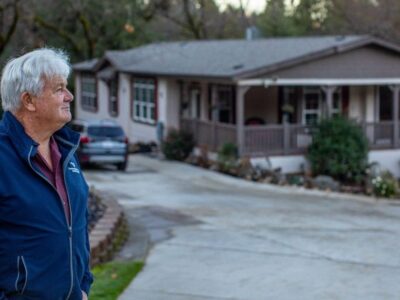The Public Trust Doctrine Revisited
The U.C. Davis Law Review has just published its annual, symposium issue, this year devoted to the Public Trust Doctrine.

Back in 1980, the U.C. Davis Law School sponsored a first-ever conference focusing on the public trust doctrine’s role in modern environmental law. A year later, the U.C. Davis Law Review published a symposium volume dedicated to the public trust doctrine, memorializing much of the scholarship first presented at the 1980 conference. That volume, in turn, would prove to be enormously influential in the development of public trust principles in courts and legislatures around the nation. For example, the articles collected in the 1980-81 Law Review volume were cited no less than eight times in the California Supreme Court’s iconic 1983 “Mono Lake” decision, which expressly applied public trust doctrine to California’s system of water rights allocation.
Fast forward 30 years. Thirty years after publication of that symposium issue, the editors of the U.C. Davis Law Review wisely decided it was time to revisit the issue. In March 2011, the U.C. Davis School of Law held a standing-room-only conference analyzing how the public trust doctrine has evolved since the early 1980’s, and what the future is likely to hold for the doctrine’s application to future natural resources controversies. The 2011 Symposium proceedings can be viewed here.
This week’s publication of the new Public Trust Symposium Issue of the U.C. Davis Law Review, entitled “The Public Trust Doctrine: 30 Years Later,” makes for fascinating reading. Among those contributing articles are some of the nation’s most influential environmental scholars and policymakers. They include Hastings College of the Law Professor Brian Gray, Vermont Law School Professor John Echeverria, Georgetown Law Center Professor Peter Byrne, University of Minnesota Law Professor Alexandra Klass, my U.C. Davis Law School colleague, Professor Al Lin, Lewis and Clark Law School’s Professor Michael Blumm, and California Court of Appeal Justice Ronald Robie.
Among these experts’ most startling conclusions–at least to me–is the fact that over the past three decades the public trust doctrine has been embraced more enthusiastically in several foreign nations than it has within the United States. Similarly, there seems to be a consensus among the symposium speakers and authors that the doctrine’s application to American water rights has failed to achieve the full potential suggested by the California Supreme Court’s National Audubon decision three decades ago.
“The Public Trust Doctrine: 30 Years Later” is required reading for anyone who, like me, finds the doctrine to be one of the most fascinating features of modern environmental law and policy. Only time will tell if this 2012 edition of the U.C. Davis Law Review will prove as influential as its predecessor 30 years ago.
Reader Comments
2 Replies to “The Public Trust Doctrine Revisited”
Comments are closed.








Hi,
I just finished putting together a report about trees dying from air pollution, which can be downloaded from dropbox here: http://witsendnj.blogspot.com/p/pillage-plunder-pollute-llc.html
If you have any thoughts about how a lawsuit using the public trust doctrine might be possible to protect them, please let me know! You can email to witsendnj at yahoo.
thanks!
Gail Zawacki
Oldwick NJ
Hi,
I just finished putting together a report about trees dying from air pollution, which can be downloaded from dropbox here: http://witsendnj.blogspot.com/p/pillage-plunder-pollute-llc.html
If you have any thoughts about how a lawsuit using the public trust doctrine might be possible to protect them, please let me know! You can email to witsendnj at yahoo.
thanks!
Gail Zawacki
Oldwick NJ